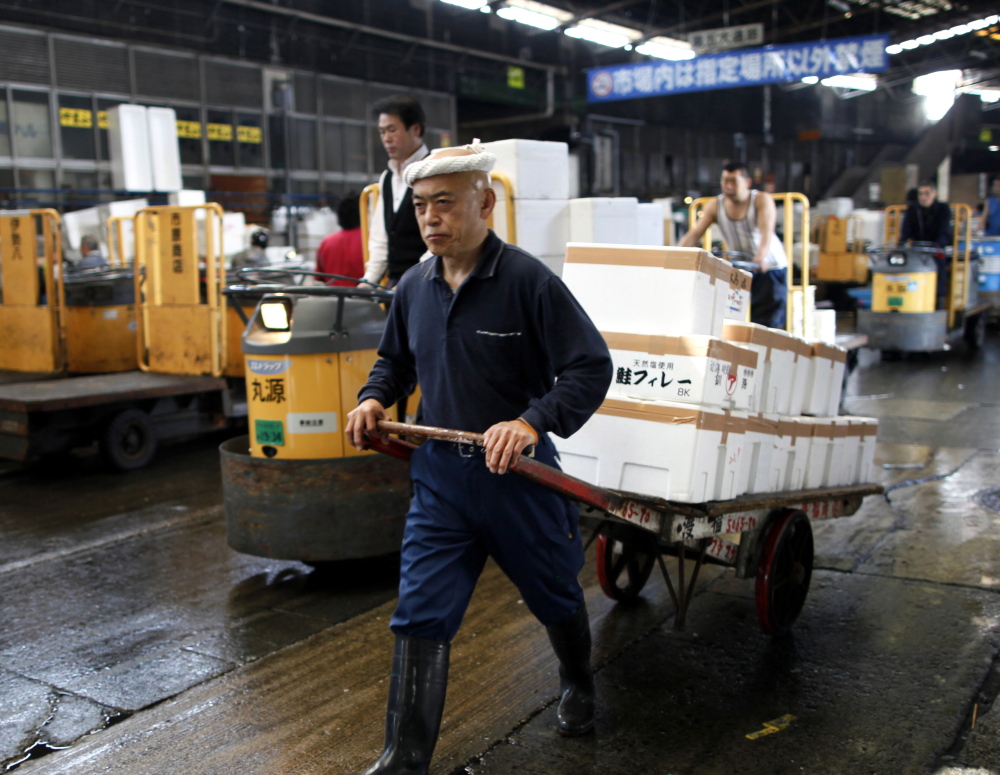TOKYO — The country that gave the world sushi now finds itself with too much fish.
Demand for seafood has been dropping in Japan for much of the past decade as people eat more pork and beef, forcing domestic fishermen to look for buyers abroad. With the help of a plunging yen, that strategy is working.
Exports are surging, and companies like Yamato Holdings and ANA Holdings are expanding a delivery network across Asia, a region that still gets most of its sushi salmon from Norway more than 5,000 miles away.
Exports have been a godsend to Japan’s 1.4 trillion yen ($11.6 billion) seafood industry, where the number of fishermen shrank 42 percent since 1995 and competition from cheaper imports has hurt profits.
While domestic demand fell more than 20 percent in the past decade, global consumption is rising as economic growth boosts incomes. Japanese seafood exports in the first half of 2015 are up almost 30 percent, providing some support to Prime Minister Shinzo Abe’s goal of boosting food sales overseas.
“We can offer fish we catch in the morning to buyers in the afternoon of the same day,” said Shigeru Koike, a 72-year-old fisherman in the port of Inatori, 93 miles southwest of Tokyo. “That’s our selling point. If we can catch more, and our co-operative managers sell more fish to overseas, that will be great.”
Foreign shipments by Japan reached 293,806 metric tons this year through June, up from 232,424 over the same period in 2014, reflecting improved demand for everything from scallops to the finest cuts of raw tuna eaten atop balled rice as sushi, according to data from the Ministry of Agriculture, Forestry and Fisheries. Seafood is showing strong gains at a time when Japan’s exports of cars, machinery and electronics haven’t recovered to their 2007 peak.
A weakening of the yen has helped, making Japanese products cheaper for some importers. The currency is down 11 percent against the dollar in the past year and has lost value relative to those of neighboring countries, including China, Taiwan and India.
While Japan is still the second-biggest fish importer, purchases are surging in places like China, South Korea and Europe, the United Nations said last year.
Japan’s meat consumption exceeded fish for the first time in 2006, and Japan is now the world’s largest pork importer.
Send questions/comments to the editors.


